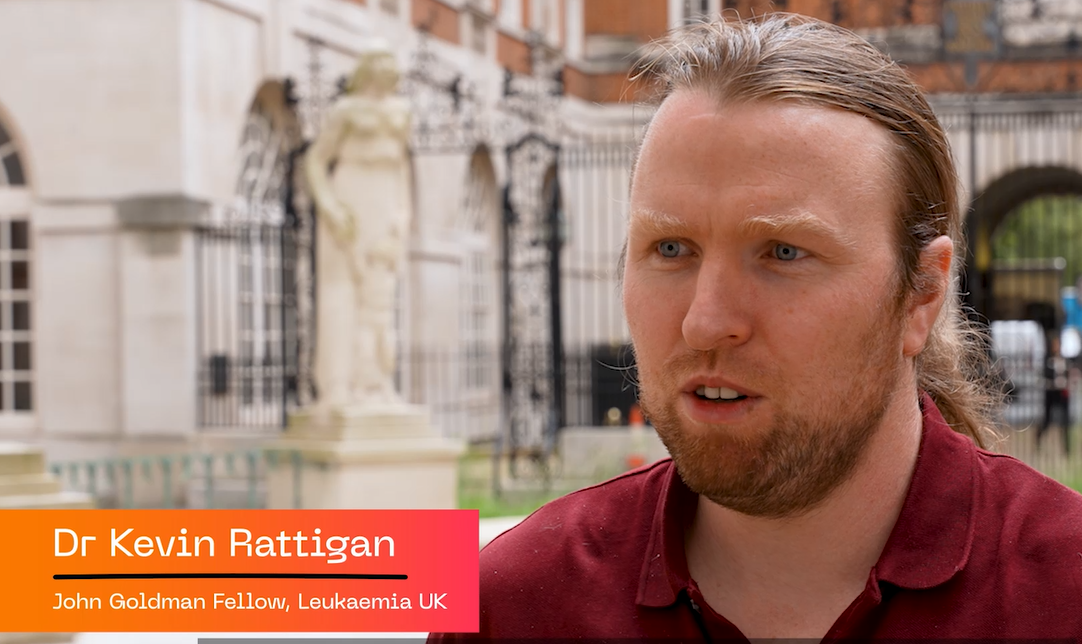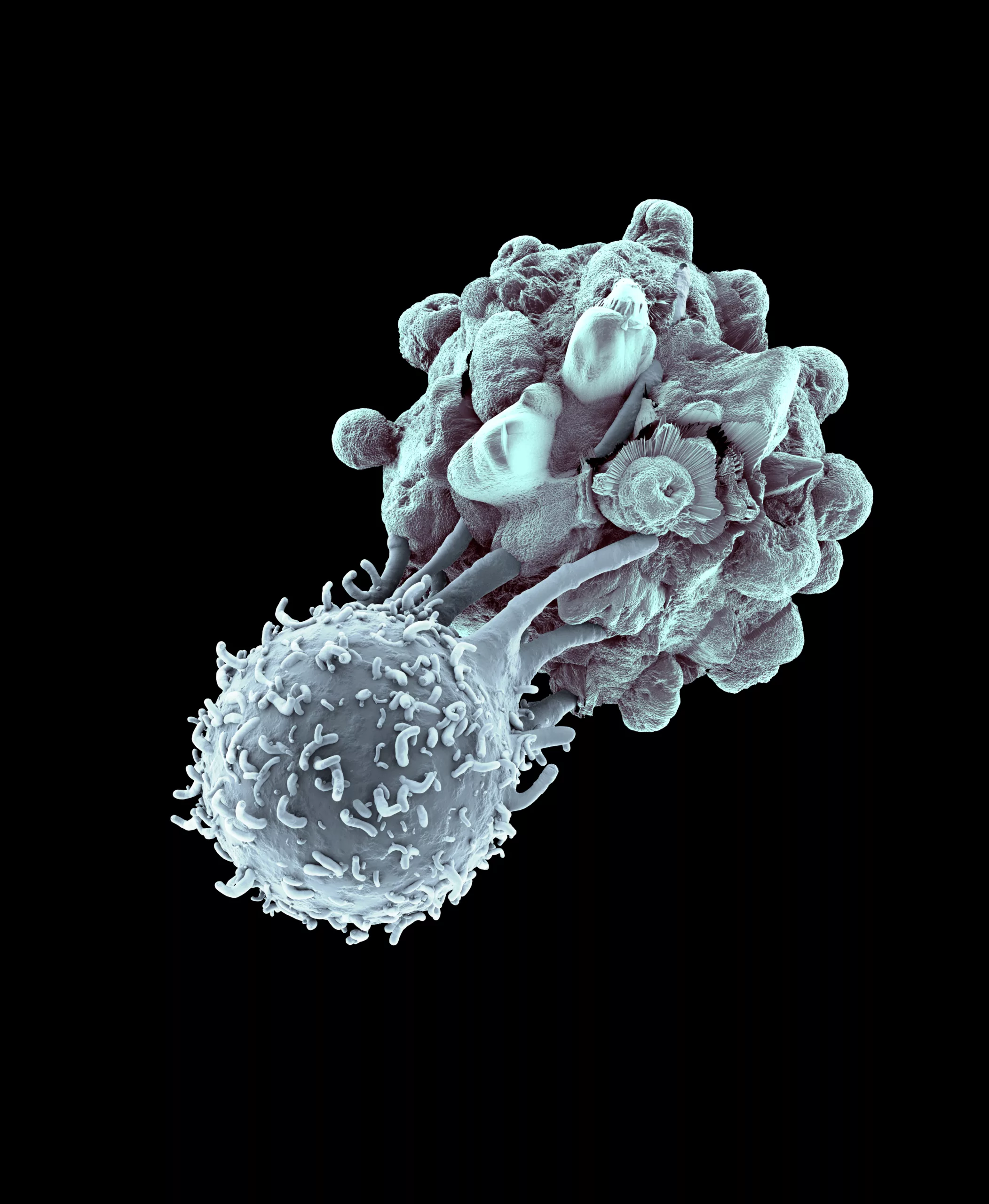Testing a potential new treatment for AML
What if removing a crucial AML nutrient could destroy leukaemia cells? Could this be a new way to treat the disease and save lives?

Dr Kevin Rattigan, University of Glasgow, is testing a possible new treatment for AML with the potential to eliminate leukaemia cells, without damaging healthy blood cells.

The challenge
Every year around 3,100 people in the UK are diagnosed with acute myeloid leukaemia (AML). Whilst improvements have been made, survival rates are among the worst of any cancer type, with just 15% of people surviving longer than five years after diagnosis.
AML treatments are often successful initially, but treatment resistance – where the cancer changes and drugs stop working – is common. More effective treatments are urgently needed to stop the disease devastating lives.
The science behind the research
In previous research, Dr Rattigan revealed a checklist of nutrients that AML needs to survive. Some of these might not be essential for normal cells in our bodies, but crucial for AML cells. Dr Rattigan has now developed a protein that can lower the levels of one of these key nutrients.
As part of his John Goldman Fellowship, Dr Rattigan now wants to test if his developed protein works in experiments that mimic what might happen in real patients. His research will test if this protein could be a potential new treatment option to slow or stop leukaemia and if so, whether it could be combined with existing AML treatments to make them more effective.
Dr Rattigan also wants to make sure that this potential new treatment only affects leukaemia cells and not normal cells of the body. This is vital for ensuring any treatment side effects are reduced.
What difference will this research make?
Dr Rattigan hopes that his research will reveal a potential new treatment option for AML patients, which could be progressed to clinical trials and ultimately benefit patients in the clinic.
This research project focuses on AML specifically, but if successful, the work could also have benefits for other blood cancers and beyond in the future.
 Play Video
Play Video 